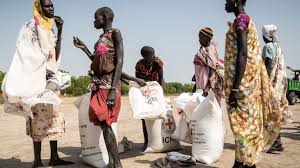Conflict in parts of Ethiopia has driven a rapid increase in food insecurity, compounding the impact of an unprecedented drought affecting the country’s eastern and southern regions, the United Nations has warned.
Titled monitoring food security in food crisis countries with conflict situations, the joint report, produced by United Nations Food and Agriculture Organization and World Food Programme, is a twice-yearly report on the acute food insecurity situation in countries where conflict and insecurity are primary drivers of acute food insecurity.
The report, issued on Tuesday, provided an overview of how conflict and violence contributed to rising food insecurity between January and October 2022 in Ethiopia.
“The recent escalation of conflict in parts of northern Ethiopia and other regions, in particular Benishangul-Gumuz and Oromia, has driven a rapid increase in food insecurity, compounding the impact of an unprecedented drought affecting eastern and southern regions,” according to the report.
“The situation in parts of northern Ethiopia remains of the highest concern. This is due to the high volatility of the context in the past months and the persistence of one or more drivers of severe food insecurity,” the report added.
Ethiopia has seen a devastating conflict between government-allied troops and forces loyal to the rebel Tigray People’s Liberation Front (TPLF) since November 2020, which left thousands dead and millions in urgent need of humanitarian assistance.
On Nov. 2, the Ethiopian government and the TPLF signed a cessation of hostilities agreement to end the two-year-long conflict.
MG/abj/APA


